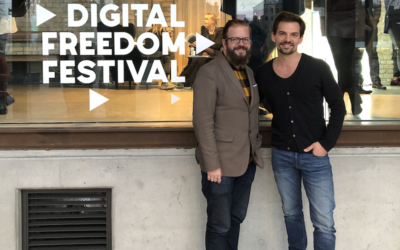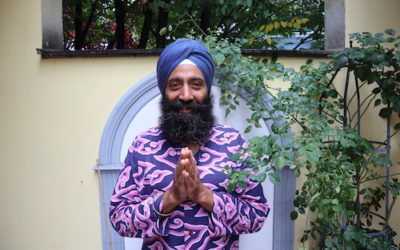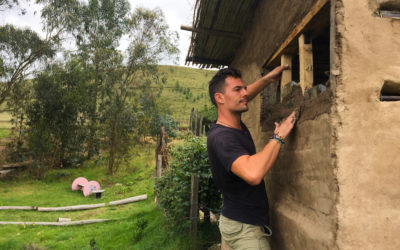Borneo Slow Travel – The spicy way of backpacking Indonesia
by Jakob Horvat, October 29th 2017, Maratua Island/IndonesiaTraveling can be hard work and no other country has proven this on my journey like Kalimantan, the Indonesian part of Borneo. I teamed up with my close friend Stefan from Vienna to explore this exotic island. A backpacking adventure in Indonesia, far out of our comfort zones, full of laughter, curiosity and some challenges with extra spices.
Midnight, somewhere on a narrow jungle road, East Borneo. The old bus driver honked and flashed every twenty seconds to warn oncoming vehicles. Especially before he approached curves, as the road with often takes only one car at a time. The co-driver was well a part of the happening, he whistled and waved his hands to support the driver with spotting hazards. That way of driving scared me. I was exhausted and fell asleep. Only a couple of minutes later I awoke rudely to a heavy break accompanied by hectic honking. What looked close to an accident didn’t bother anybody else in the bus.
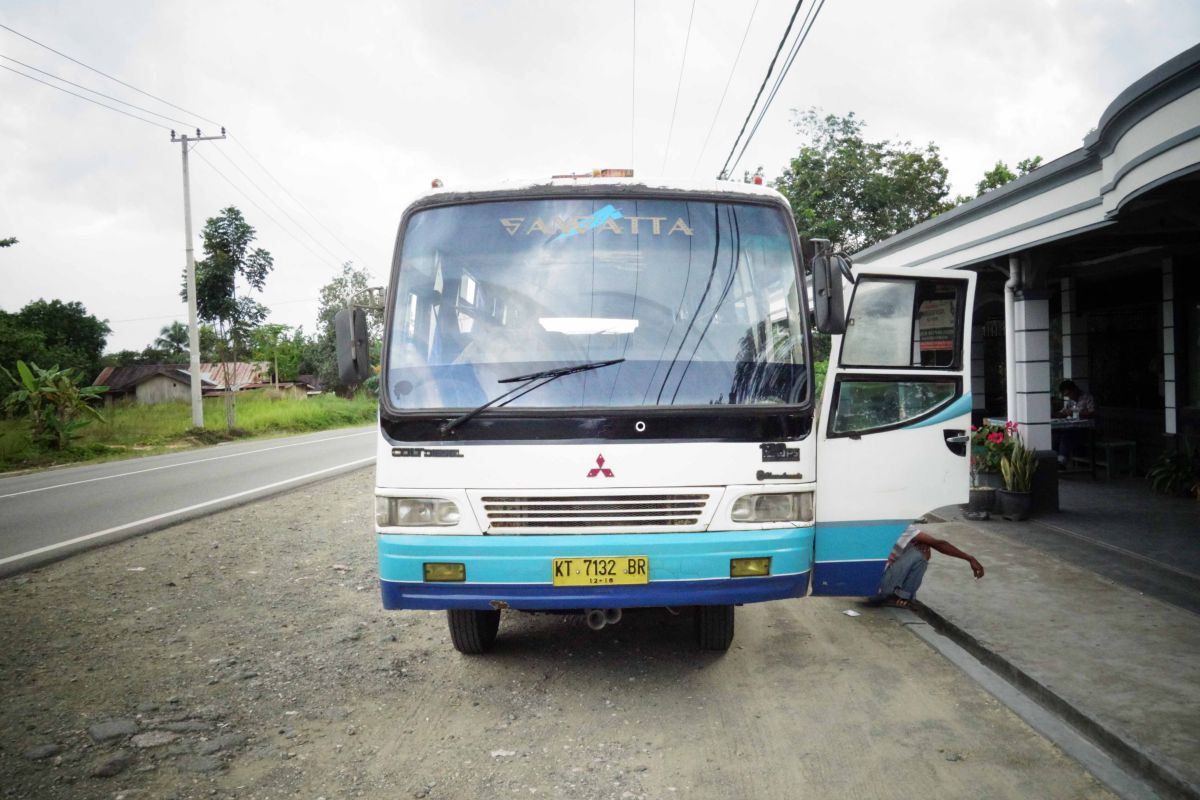
Indonesians are curious, friendly and want to help
But the vast majority doesn’t speak English. Not even in travel agencies or guesthouses. A fact that many obviously don’t want to admit – pretending they understood when they actually didn’t is a popular thing to do. With consequences of different dimensions.
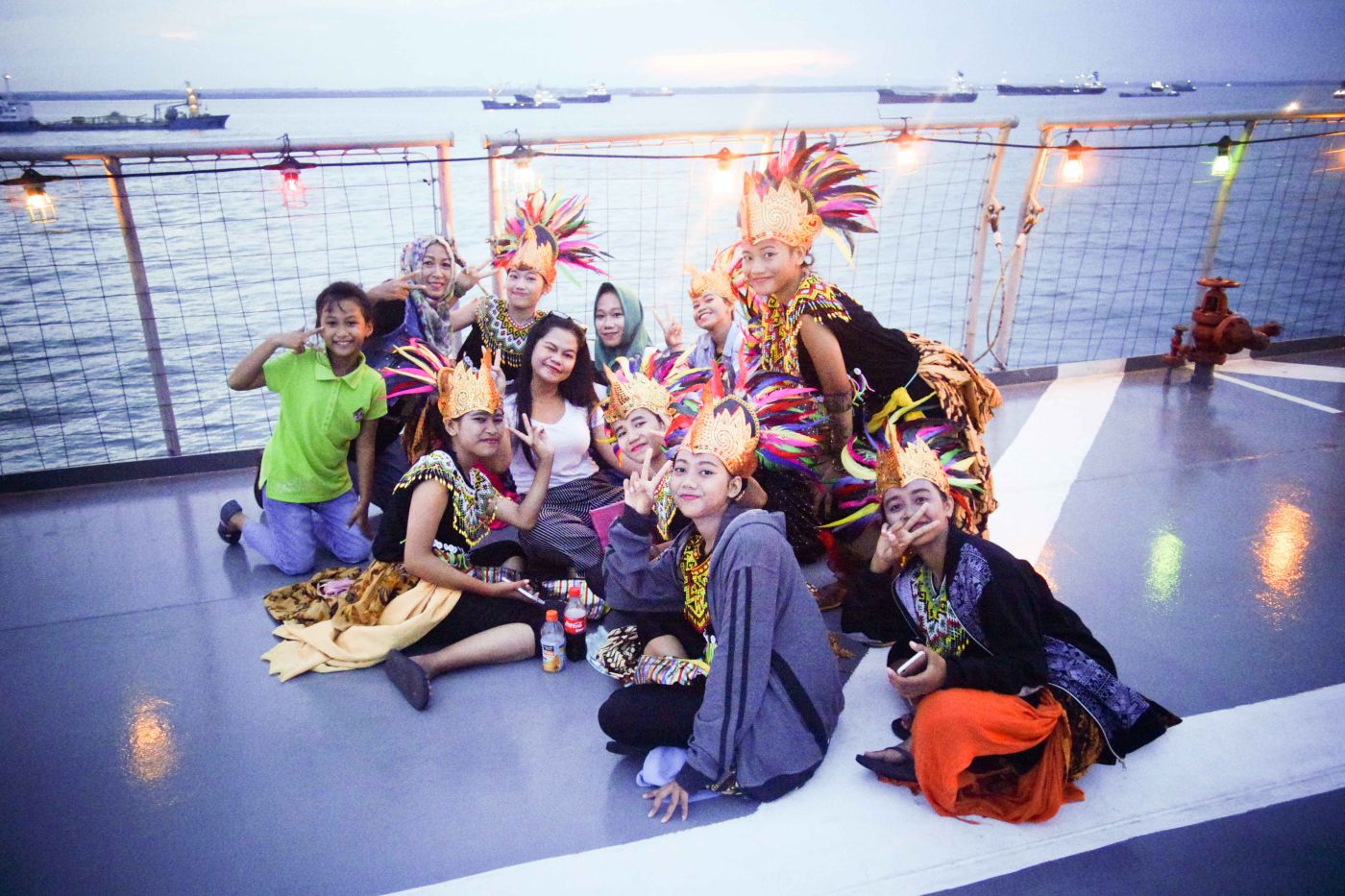
Meeting foreigners is a sensation for the locals on Borneo
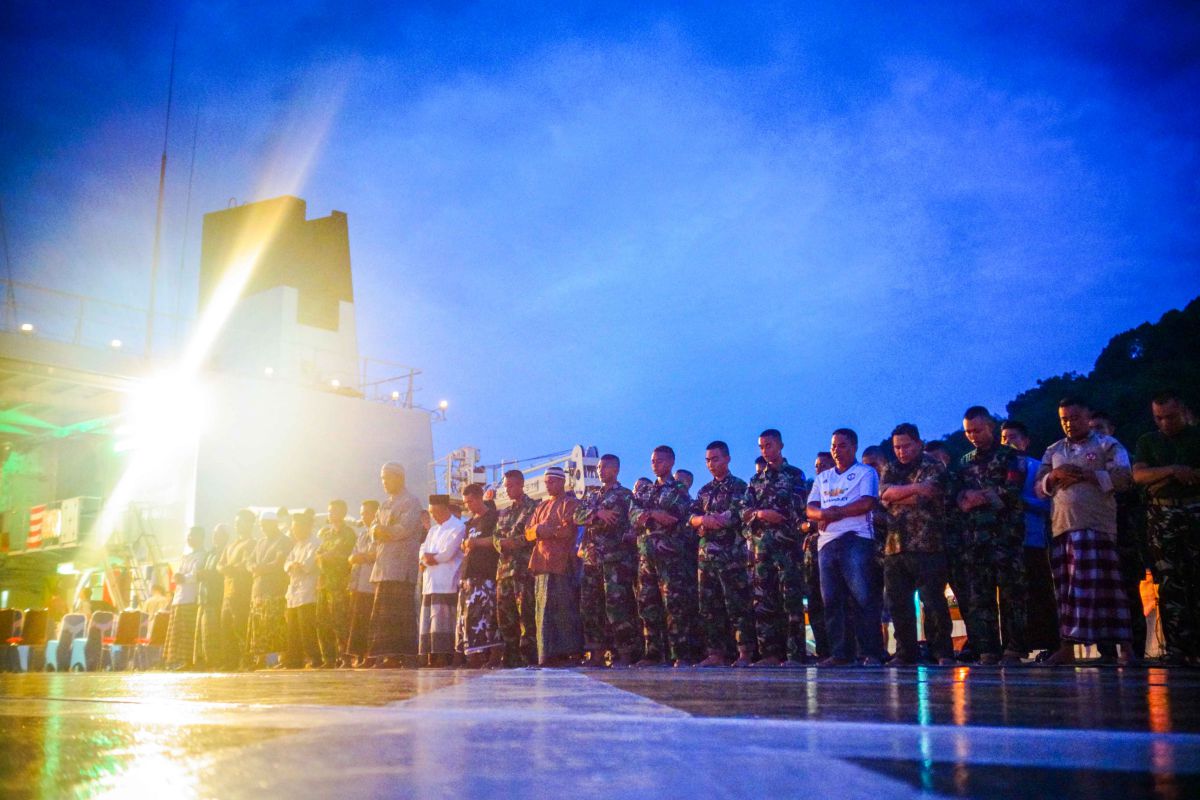
Evening prayer on a military ship in Balikpapan
In eight days we haven’t seen any other foreigners
Meeting a white person is sensational to many locals. While shy Indonesians stared at us as if we were blue giraffes in sports cars, the bolder ones asked us to take selfies. Orgies of selfies, as if we were famous. Chances are, we are meanwhile – Instagram is huge in Indonesia.
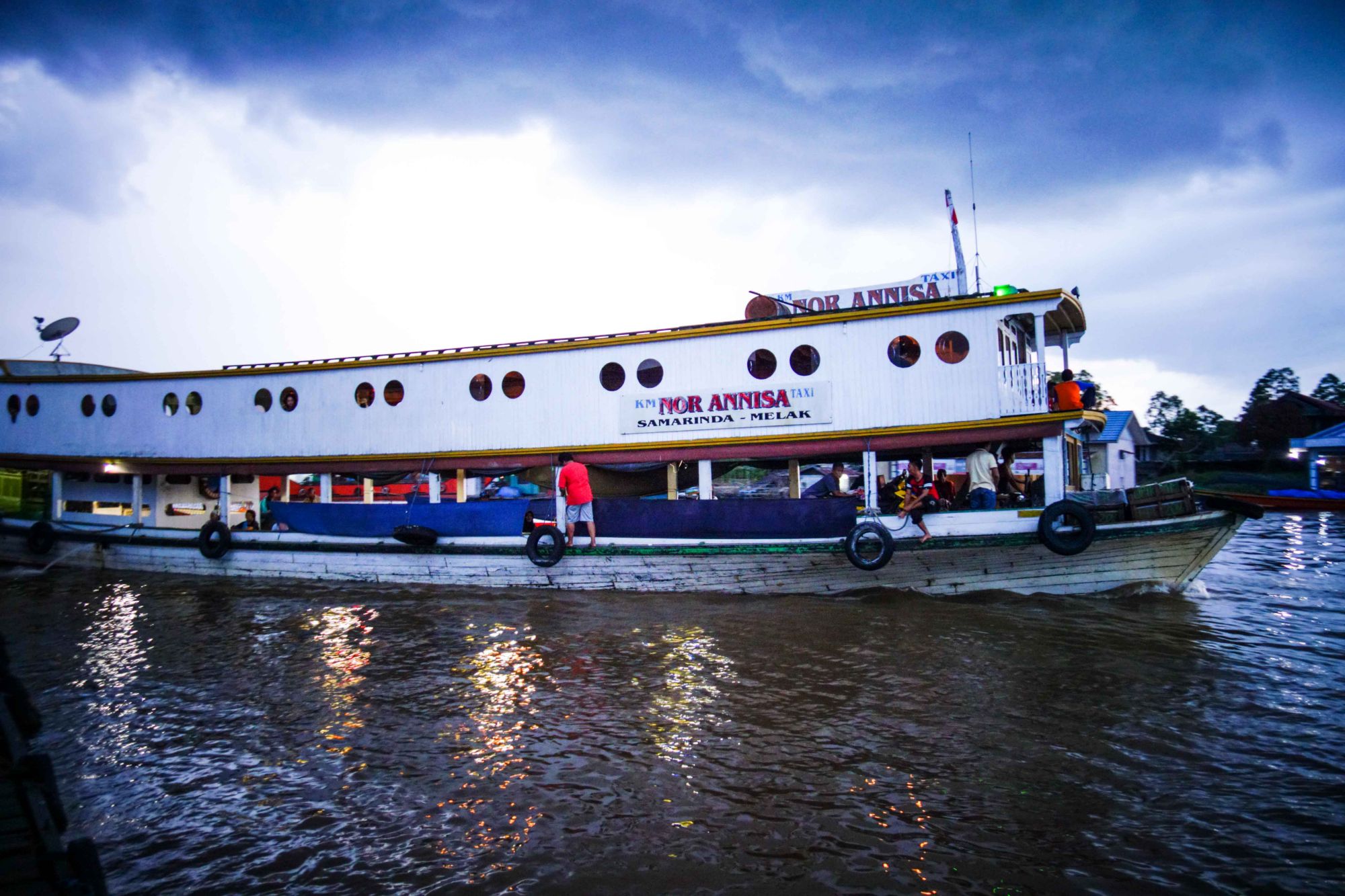
20 hours roundtrip from Samarinda to Muara Muntai, upstream the Mahakam-River
Truth be told – I had a hard time to get used to this
I thought I have been through enough adventures that this can’t really bother me. That was a misbelief. The combination of not being able to communicate, misunderstandings aplenty, not enough sleep and the exhausting way of traveling in the tropical heat by dirty boats and old busses played the travel blues with loud trumpets. This too shall pass, I thought. Part of the travel game. Accepted.
What really caught me off the guard though was the seeming indifference of Indonesians in terms of treating nature. Plastic trash piles up on streets and beaches, in forests and rivers. People throw it out of bus windows or burn it. The insane destruction of rainforests on Borneo had been going on for decades and I witnessed it front row. I smelled the burning forests, heard the screaming chainsaws and got stuck in traffic jams of palm oil trucks. Less than 50% of the rainforest is left. That seriously impacted my mood levels and I was shocked about my own inability to deal with the discomfort. It took me some days to develop new tools and adjust to this advanced level of traveling. I applied a simple but effective strategy by asking myself:
What is in it for me? What can I learn from this?
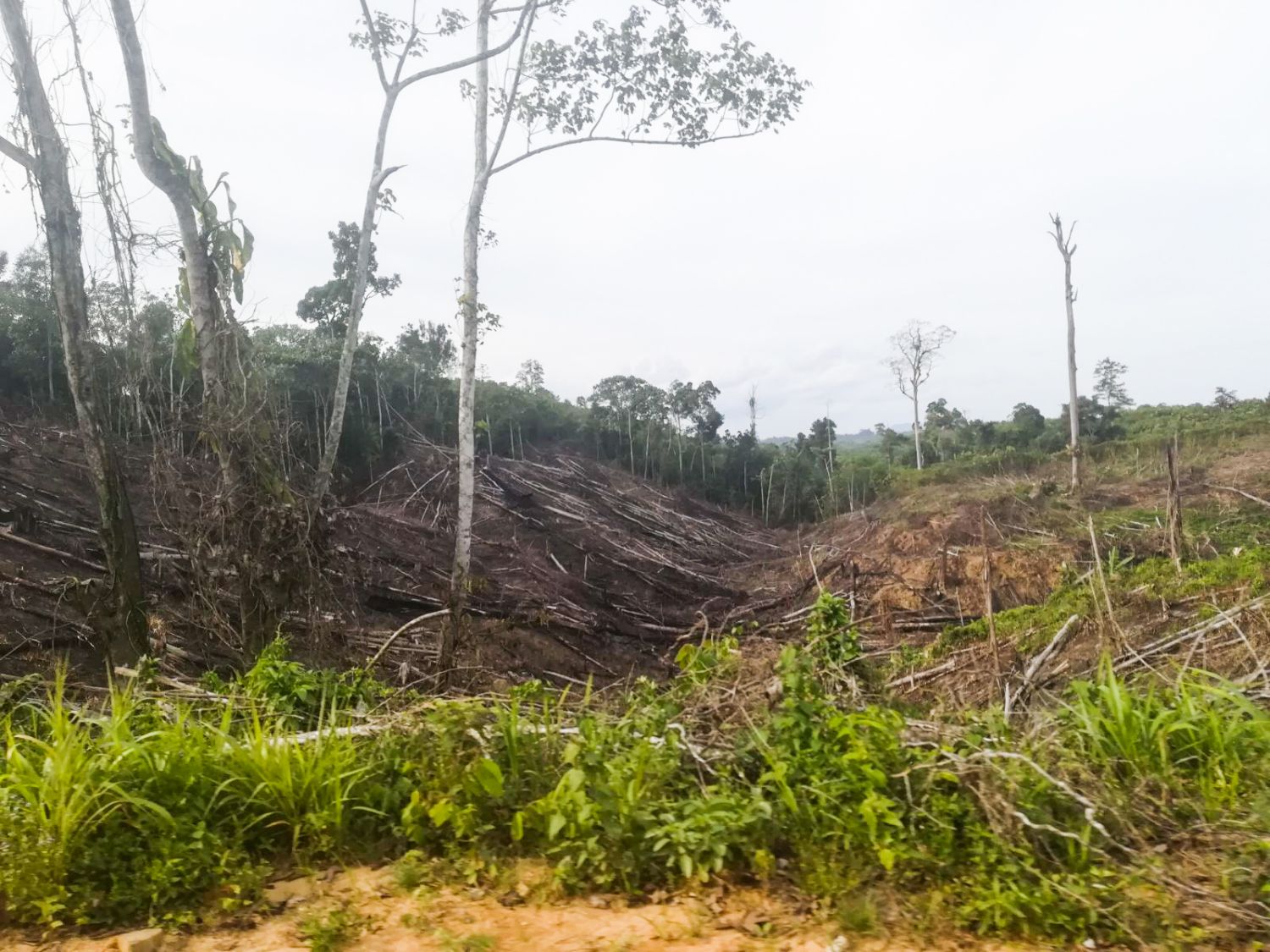
Coalmining and palm oil plantations kill the rainforests on Borneo
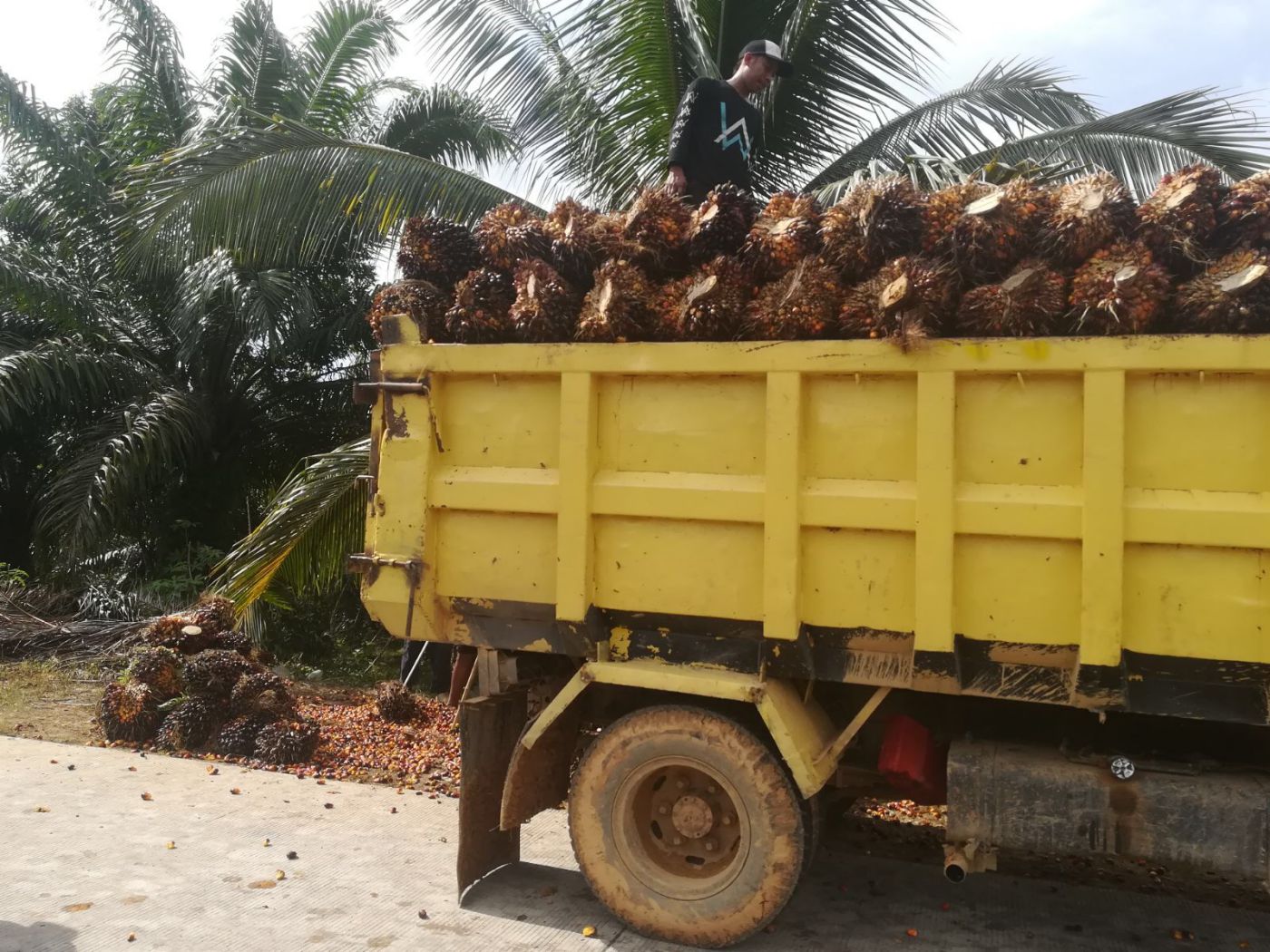
Hundreds of palm oil trucks on the road from Samarinda to Sangatta
Playing the travel game with joy
Obviously, I’m still having issues with accepting what I can’t change and becoming at peace with the discomfort. But after all, this way of traveling is an unpredictable balance between expanding my comfort zone and playing within. Once I could remind myself of that and feel accordingly, things got much easier and the travel game became more playful again.
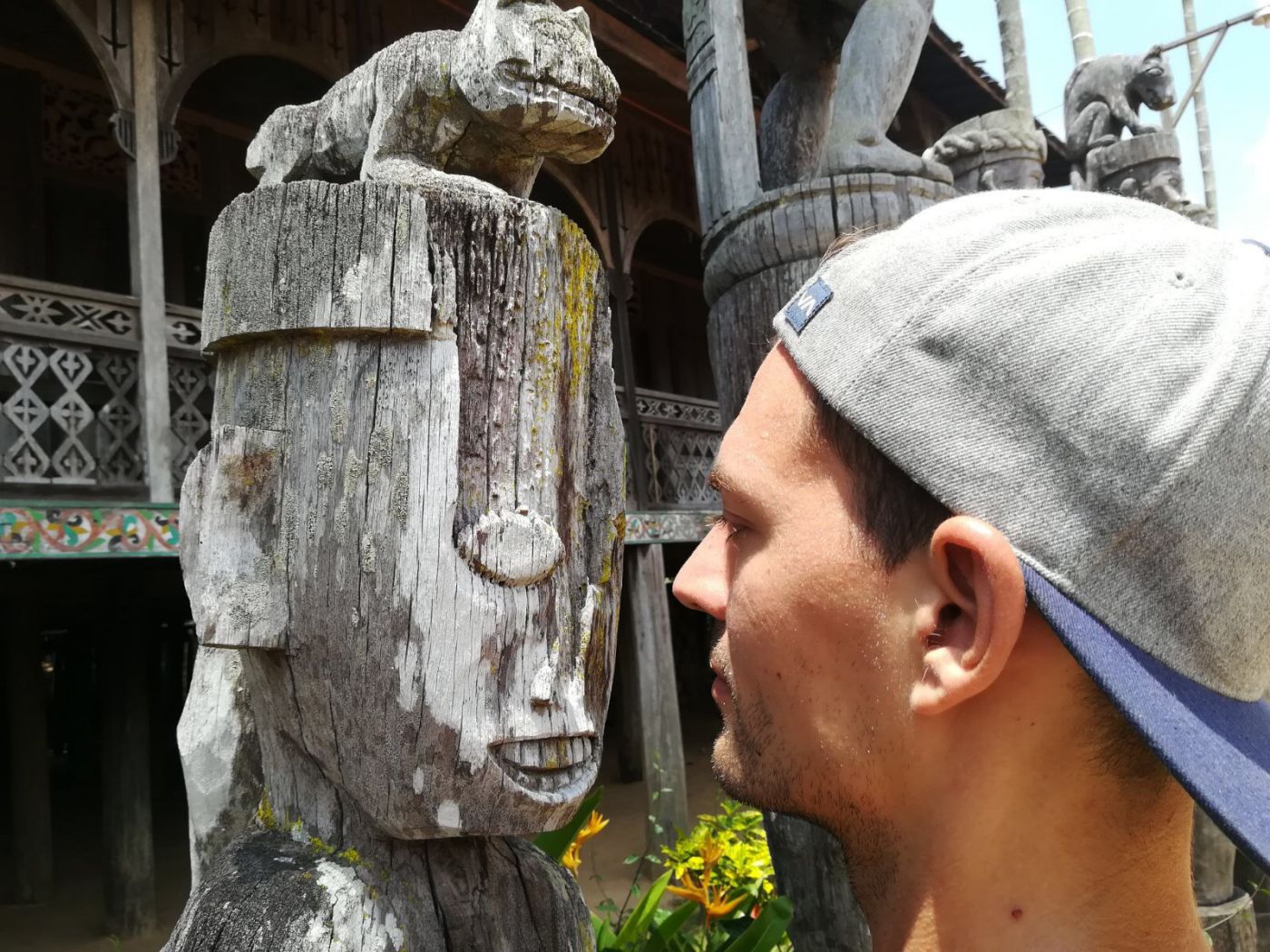
A matter of perspective
Then something changed. First, I judged the old bus driver for what I called an insane – what locals would call a normal – driving style. Then, I realized, with how much flair and sensitivity he maneuvered the rickety and hardly roadworthy vehicle through the night. The old man became a hero in my perception. His co-pilot helping him identifying tricky curves, dangerous bumps and oncoming traffic on our side of the road. Both fully focused, for eight hours of marathon driving.
Once I managed to let go of judgements and expectations, I started to embrace what came along. That opened the door to a more profound experience of culture, people and their ways of living. Or driving. Indonesia rewarded us with the genuine kindness and curiosity of its people and gave us pure insights in a world so different from ours. And spiced it all up with some valuable lessons only taught in the discomfort zone.
Join Stefan Tesch and me as we were working our way through Borneo:
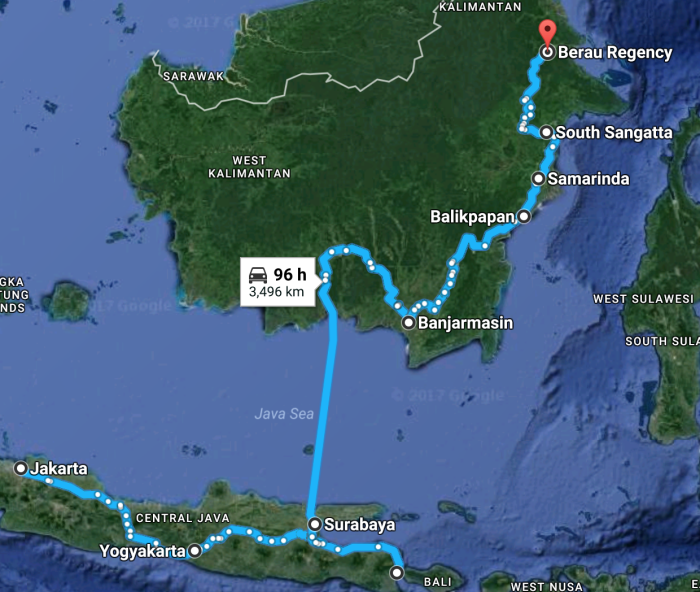
3 weeks slow travel in Indonesia
Kilometers traveled in Java & Borneo: 3.500
By boat: 720km
Number of boats: 11
By train (Java): 1.400
By bus (Borneo): 1.266
Money spent: 750 € for transport, accomodation, entrance fees, tours, food & drinks (in Indonesian Rupees: 12.000.000)
